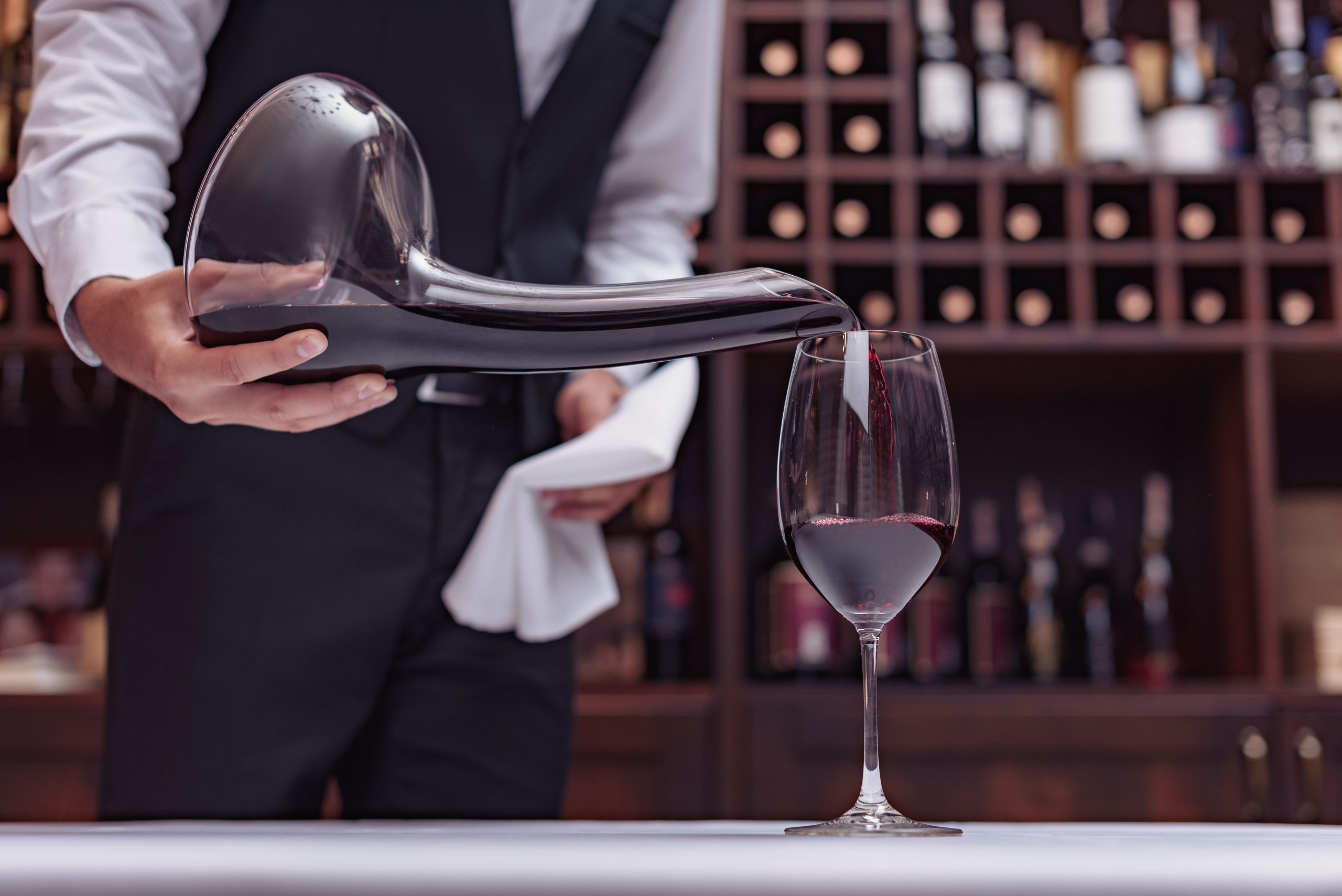It seems that the decanter was invented by the Romans, but the first scriptic mention of its spread would date back to eighteenth-century England. In the wider world it became popular in the years 1960 – 1970. There are collectors of decanters, who, since 1970, meet annually at the IJBBSC Convention (International Jim Beam Bottle Speciality & Club), which brings a limited edition of decanters produced exclusively for this event.
The right size of a decanter is for 0.75 l and can be found in different forms: standard (the one with a flat base, like a vase), in the form of A U, snake or bell. There are also industrial decanters, based on the principle of centrifuge. Currently, manufacturers are focusing on utility. However, riedl manufacturers from Kufstein – Austria, have created decanters so attractive that their sight is breathtaking and it is a real show their use, constituting themselves as the central piece on a table with claims. It is guaranteed that you would fail by offering such a decanter as a gift to a wine enthusiast.
According to Wine Folly, if you find yourself in one of the following statements, you need a ecanter: “you still buy real books, you like viti-viniculture as a craft, you think that art can be useful and that meditation is good”.
On the other hand, if you are passionate enough about wine and quite skillful, you don’t even need a decanter. Pour your wine into a generous glass and be patient with it, tell it either with yourself, observing it, or with someone you love or chosen. The wine will open and reveal all your mysteries (and will save you from the effort of washing the decanter after!).
Or get yourself a little aerator, if you are the modern version of the wine enthusiast. It would still be the hyper-decanter,, but we already go to the area of professionals and do not recommend using it at home.
What do we decant?
First of all, the wines, but we can use the decanter to whiskey, cognac, bourbon, scotch. You can keep in it vodka, tequila, gin, rum, brandy. The duration of keeping spirits can reach up to 2 years, if the stopper closes tightly. It can also be used in iced tea, water, juice, lemonade, for a more visually elevated presentation, but much more suitable for them would be thecarafe..
How do we choose the decanter?
We choose a decanter that we can easily handle and clean, because we find in the trade a lot of strange shapes that end up in the windows, being too difficult to use. If we choose a classic one because we will use it often and we want to sanitize it in the dishwasher, it is good that it is made of glass. If we are skilled and willing to make more effort to clean it, we will choose one made of crystal and offer a show using it, but we will take care not to keep the wine in it for more than a week.
How do we choose the right decanter, depending on the wine?
For red, orange, natural and biodynamic or full-bodied white wines: decanter with a wide base; in red wines with medium body: classic, medium decanters; and for thin red wines, white and rose wines: small or medium decanters, which can be cooled. The old sparkling wines are decanted in a kind of amphorae, to reduce the loss of fine pearls.
Between myth and truth:
- the decanter helps to separate the sediments: true, but it can be poured carefully and directly from the glass, if the handler of the container has enough experience;
- improves flavors: often true, oxygenation exacerbates perception and the subtlest shades of smell;
- save a wine with a stopper defect: FALSE!, because once here, that wine can only be saved by replacing it with another, without defect.
- it is not recommended to decant / air the aromatic wines, because we have them widows exactly of their most obvious characters.
How long does decanting last?
The airing time in the decanter differs from the type of wine and can vary from 30 minutes for thin wines (white, rose, sparkling, light tomatoes), up to 2 hours for full-bodied wines (old red, orange, white barricaded). For a quick aeration we can use two classic decanters, successively pouring from one to another; we can easily rotate the decanter, to put as much wine in contact with the air as possible or we can unwrap a sparkling to enjoy it and the decanting time to seem shorter.
How to clean a decanter?
Put 2 cm of rice and warm water in the decanter and turn it until you are sure that any deposit has come off the bottle. Rinse well with hot water inside and outside and then immediately with cold water inside the decanter, to avoid steaming and promote quick drying.
Undeniably, the correct ventilation immediately after opening the bottle gives added value to the taste of any wine that can benefit from this advantage. But with or without the decanter, the important thing is to enjoy the Bahraini liquor in all the moments that can bring us together.






